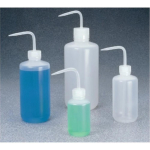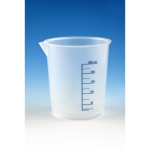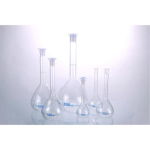Application
Interferon-?, human (hIFN-?), can be used to investigate IFN-? activities in human cell systems.
Interferon-?, human (hIFN-?) has been used to stimulate mesenchymal stem cells (MSCs). It has also been used as a supplement Dulbecco?s modified Eagle?s medium/Ham?s medium for the cultivation of human colorectal carcinoma cell line T84 cells.
Biochem/physiol Actions
A broad range of biological activities has been attributed to IFN-γ (e.g., the establishment of the antiviral state, immunoregulatory functions, antiproliferative effects and inhibition of cell growth). The anti-proliferative effects of IFN-γ are superior to those of either IFN-α or IFN-β. Growth inhibition is dependent on cell type, dose, and length of exposure. One of IFN-γ’;s primary functions might be as an immunoregulatory agent: IFN-γ induces MHC antigens on many cells, Fc-receptors on monocytes and macrophages, IL-2 receptors on T-cells, enhances activity of macrophages, polymorphonuclear leukocytes, T-lymphocytes, and NK-cells (MAF), and is also involved in the regulation of B-cells.
Interferon-? (IFN-?) is an essential component of acquired immunity. A broad range of biological activities has been attributed to IFN-? (e.g., the establishment of the antiviral state, immunoregulatory functions, antiproliferative effects and inhibition of cell growth). The anti-proliferative effects of IFN-? are superior to those of either IFN-? or IFN-?. Growth inhibition is dependent on cell type, dose, and length of exposure. One of IFN-??s primary functions might be as an immunoregulatory agent: IFN-? induces MHC antigens on many cells, Fc-receptors on monocytes and macrophages, IL-2 receptors on T-cells, enhances activity of macrophages, polymorphonuclear leukocytes, T-lymphocytes, and NK-cells (MAF), and is also involved in the regulation of B-cells.
General description
IFN-? is produced by T-lymphocytes stimulated by antigen or by T-cell mitogens. Under nondenaturating conditions its molecular weight values range from 32,000 to 73,000 indicating that recombinant human IFN-? exists as a dimer or higher oligomers.
Other Notes
EC 50 : ﹤0.05ng/ml (hIFN-γ , NIH, reference standard, Gg 23–901-530)
For life science research only. Not for use in diagnostic procedures.
Physical form
100,000U/ml or 1,000,000U/ml of Human IFN-γ in 0.1M phosphate buffer saline (PBS) (pH 7.0), 2.5% sucrose (w/v), and 2.5% human serum albumin (HSA) (w/v), filtered through a 0.2µm pore size membrane.
Preparation Note
Working solution: Solvent is recommended in double-distilled water.Storage conditions (working solution): Stability in culture: Activity is present for at least 18 hours in culture medium.
Quality
The raw material used for this preparation was tested for HBs antigen and for the presence of antibodies to HIV-1, HIV-2, and HCV found to be negative. Endotoxin level: ﹤0.1EU/µg (LAL-test), ﹤10EU/ml (LAL-test)Note: 1EU corresponds to 0.1ng
Sequence
Chain Length 143 AA







